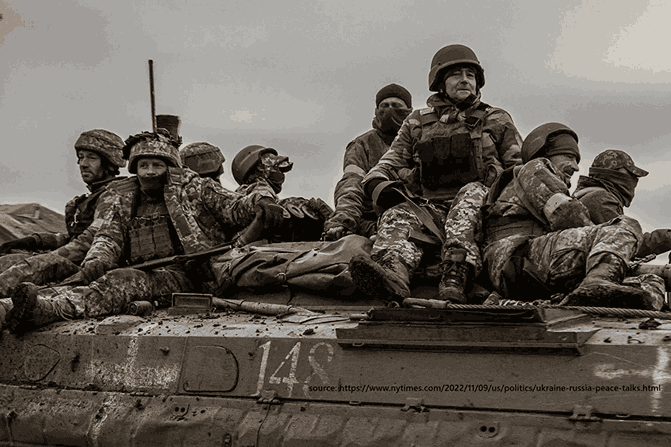7 Chinese sentenced to 20 years each for trafficking and forced labor in South Africa
On 10 September 2025, a Johannesburg court handed down a historic judgment in one of South Africa’s most disturbing human trafficking and labor exploitation cases. Seven Chinese nationals and their company, Beautiful City (Pty) Ltd, were found guilty of subjecting nearly one hundred Malawian men, women, and children to conditions of forced labor, deception, and inhumane treatment. Each of the accused was sentenced to twenty years in prison, a decision widely hailed as a significant milestone in South Africa’s fight against human trafficking and illegal labor practices.
This case not only exposed the severe vulnerabilities of undocumented migrants in South Africa but also underlined the responsibility of governments and law enforcement agencies to enforce labor laws, protect workers’ rights, and deter those who profit from exploitation.
Origins of the Case
The story traces back to 2017 when several Malawian citizens, many of them young men and teenagers, were lured by false promises of legitimate employment in South Africa. Recruiters working for Beautiful City, a Chinese-owned textile and manufacturing company based in Village Deep, Johannesburg, offered opportunities of stable jobs and decent pay. Many of the victims came from impoverished backgrounds in Malawi and accepted the chance without hesitation.
Upon arrival, however, their reality bore little resemblance to the promises made. Instead of freedom and fair wages, the workers found themselves in conditions resembling imprisonment. Confined to the factory premises, cut off from the outside world, and subjected to relentless labor, they quickly realized they had been trafficked.
The Exploitation Unveiled
Investigations later revealed that 91 undocumented Malawian workers were recruited, including minors between the ages of 14 and 16. The factory where they were housed and forced to work was heavily secured with razor-wire fences, locked gates, and surveillance. Armed guards ensured no one could leave the premises without permission.
Inside, the victims endured grueling shifts that lasted 11 hours per day, seven days a week. There were no breaks, not even during public holidays. Workers were forbidden from bringing their own food or communicating with outsiders. Their wages were withheld, and they had no access to medical care.
The factory machinery was old and unsafe, leading to several injuries. One worker lost a finger in an accident, while others sustained burns and cuts. Instead of being sent to a hospital, they were forced to continue working without proper treatment. The investigation painted a picture of systematic abuse, highlighting how the victims were treated not as human beings but as disposable labor.
Arrests and Legal Charges
The case came to light in November 2019 when South African law enforcement agencies, working alongside the Department of Employment and Labour, raided the factory. Authorities were shocked at the conditions, describing them as modern-day slavery.
The seven accused were identified as Shu Uei Tsao also known as Kevin Tsao Shu Uei, Biao Ma, Hui Chen, Quin Li, Zhou Jiaqing, Junying Dai, and Zhilian Zhang. They faced an array of charges which included:
- Human trafficking
- Forced labor
- Child labor
- Bondage and debt exploitation
- Contraventions of immigration and labor laws
- Failure to maintain workplace safety standards
- Failure to register with required compensation and unemployment funds
Their company, Beautiful City (Pty) Ltd, was also charged alongside them, making the case one of the most comprehensive labor law prosecutions in South African history.
The Trial and Conviction
The trial, which stretched over several years, saw prosecutors present harrowing testimony from survivors and labor inspectors. Workers recounted how they had been locked inside the compound, forced to share overcrowded rooms, and treated as prisoners. Witnesses described the physical and emotional toll of working under relentless pressure without freedom, dignity, or basic rights.
In February 2025, the Johannesburg High Court found the seven guilty on 160 counts, though final sentencing reflected 158 counts due to technical adjustments. The court emphasized the deliberate deception used to recruit the victims, the inhumane living conditions, and the blatant disregard for South African labor and immigration laws.
Sentencing: 20 Years Each
On 10 September 2025, sentencing was delivered. Each of the seven accused was handed 20 years in prison. While the prosecution had called for life sentences, arguing that the scale of the exploitation demanded maximum punishment, the court considered factors such as consistency in sentencing, proportionality, and the deterrent message the case already carried.
Judge Thandi Maseko stated during sentencing that human trafficking and forced labor represent one of the most serious violations of human dignity. The court must send a clear message that South Africa will not tolerate slavery in any form.
The Department of Employment and Labour welcomed the outcome, describing it as a landmark victory in the ongoing struggle against trafficking. Officials highlighted that the case demonstrated the effectiveness of inter-agency collaboration and the importance of upholding human rights for all workers, regardless of their immigration status.
Reactions to the Verdict
The sentencing triggered strong reactions both domestically and internationally. Labor unions, human rights organizations, and anti-trafficking advocates praised the judgment as a breakthrough. The Southern African Development Community commended South Africa for holding traffickers accountable, particularly since the victims were regional migrants from Malawi.
Migrant rights organizations pointed out that the case underscores how undocumented migrants are often the most vulnerable to exploitation. They urged governments in the region to strengthen protections, improve cross-border labor cooperation, and provide safe channels for legal migration.
In China, the case received limited media coverage, but diplomatic channels confirmed awareness of the conviction. The Chinese embassy in Pretoria issued a brief statement saying it respected South Africa’s legal process while urging fair treatment of Chinese citizens abroad.
Why This Case Matters
This sentencing is significant for several reasons.
- It provides a deterrent effect. By handing down long prison terms, the court aimed to discourage other businesses from exploiting undocumented workers. South Africa, with its high number of migrant laborers, has long struggled with labor law enforcement.
- It represents recognition of human trafficking. The case treated labor exploitation not merely as a labor law violation but as human trafficking, which is a crime of the highest severity under international law.
- It ensures the protection of children. With minors among the victims, the conviction highlighted South Africa’s obligations under international conventions to protect children from exploitation.
- It promotes regional cooperation. Since the victims were Malawian, the case underscored the need for regional solutions. Labor migration within southern Africa is common, but without proper protections, it often leads to abuse.
Broader Context of Human Trafficking in South Africa
South Africa has long been identified as both a destination and transit country for trafficking victims. Migrants from Malawi, Mozambique, Zimbabwe, and other neighboring states are often promised jobs but end up in conditions of forced labor, domestic servitude, or sexual exploitation.
According to international reports, traffickers exploit weaknesses in border controls, corruption, and high unemployment rates. The International Labour Organization estimates that globally, more than 25 million people are trapped in forced labor. This case in Johannesburg highlights that the problem is not abstract but a lived reality affecting thousands in southern Africa.
The South African government has passed strict anti-trafficking legislation, but enforcement has historically been uneven. This conviction demonstrates progress and commitment to cracking down on exploitative practices.
The Human Cost: Stories of the Victims
Beyond the courtroom, the human stories remain the most striking element of the case. Many of the victims recounted how they left Malawi in search of better futures, only to be trapped in misery.
One survivor described how he worked seven months without receiving any wages, all while being forced to sleep in overcrowded dormitories without proper sanitation. Another, only 15 at the time of recruitment, explained how he was beaten when he attempted to resist the conditions.
While authorities eventually rescued the victims, reintegration has been difficult. Some were repatriated to Malawi, while others chose to remain in South Africa under protective programs. The trauma of their ordeal remains profound.
Looking Forward: Lessons Learned
The Johannesburg judgment highlights several key lessons.
- Strengthening inspections of factories, especially those employing foreign workers, is crucial.
- Awareness campaigns are needed so that potential migrants understand the risks of trafficking and false job offers.
- Regional cooperation between Malawi and South Africa must improve to provide safe migration channels and victim reintegration.
- Stronger penalties should be considered in cases involving children, as advocates argue that twenty years is not enough for such severe crimes.
- Corporate accountability must be enforced to ensure that businesses are responsible for supply chains free of forced labor.
Conclusion
The sentencing of the seven Chinese nationals to 20 years in prison each marks a turning point in South Africa’s approach to human trafficking and labor exploitation. By treating the case with the seriousness it deserves, the court affirmed that slavery, in any form, has no place in modern society.
Yet, the case is also a reminder of the persistent vulnerabilities faced by migrants in the region. For the victims, justice may bring some closure, but their suffering underscores the urgent need for systemic reforms. If South Africa and its neighbors can learn from this case, then the judgment will not only punish the guilty but also protect future generations from exploitation.




